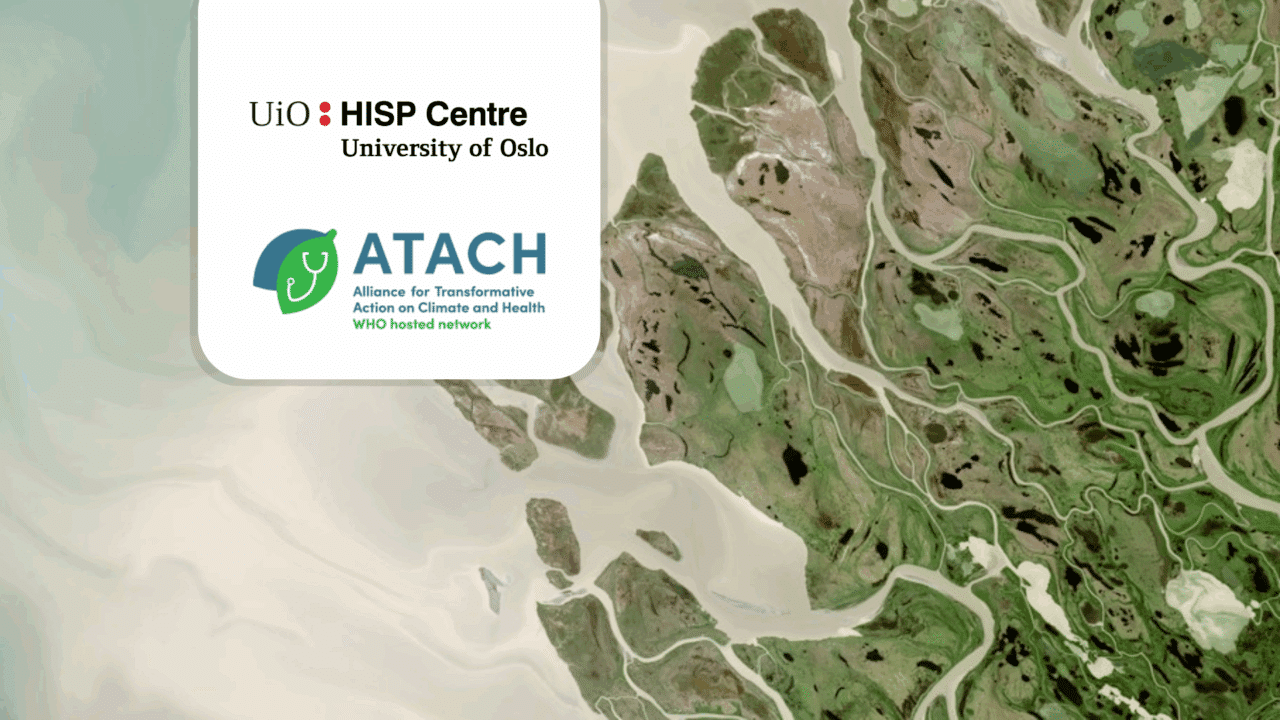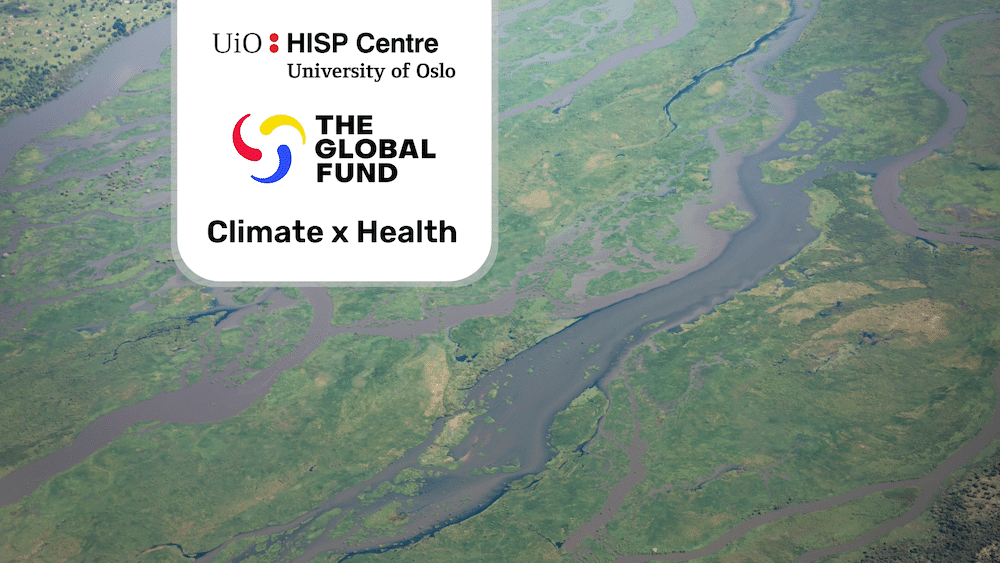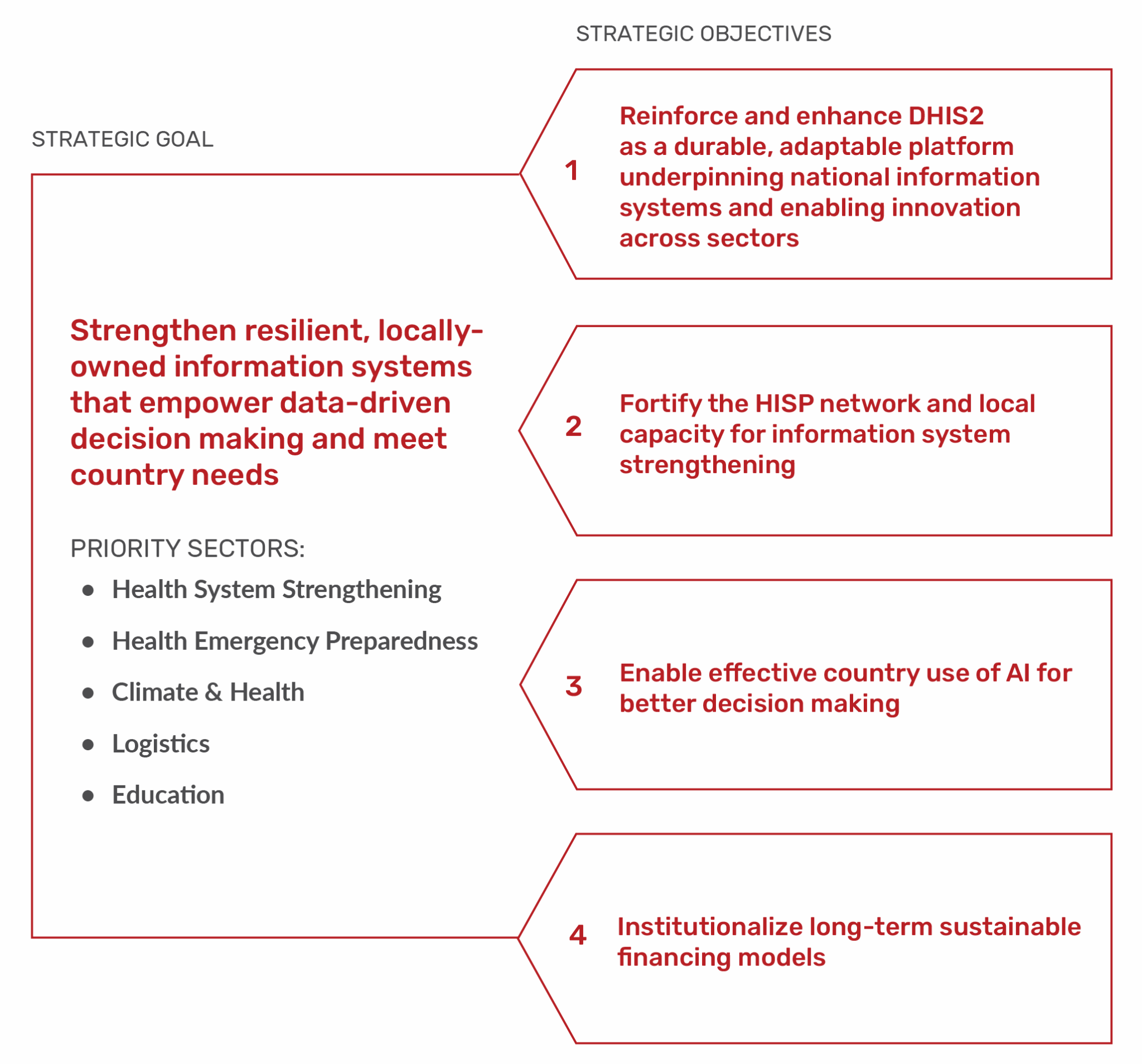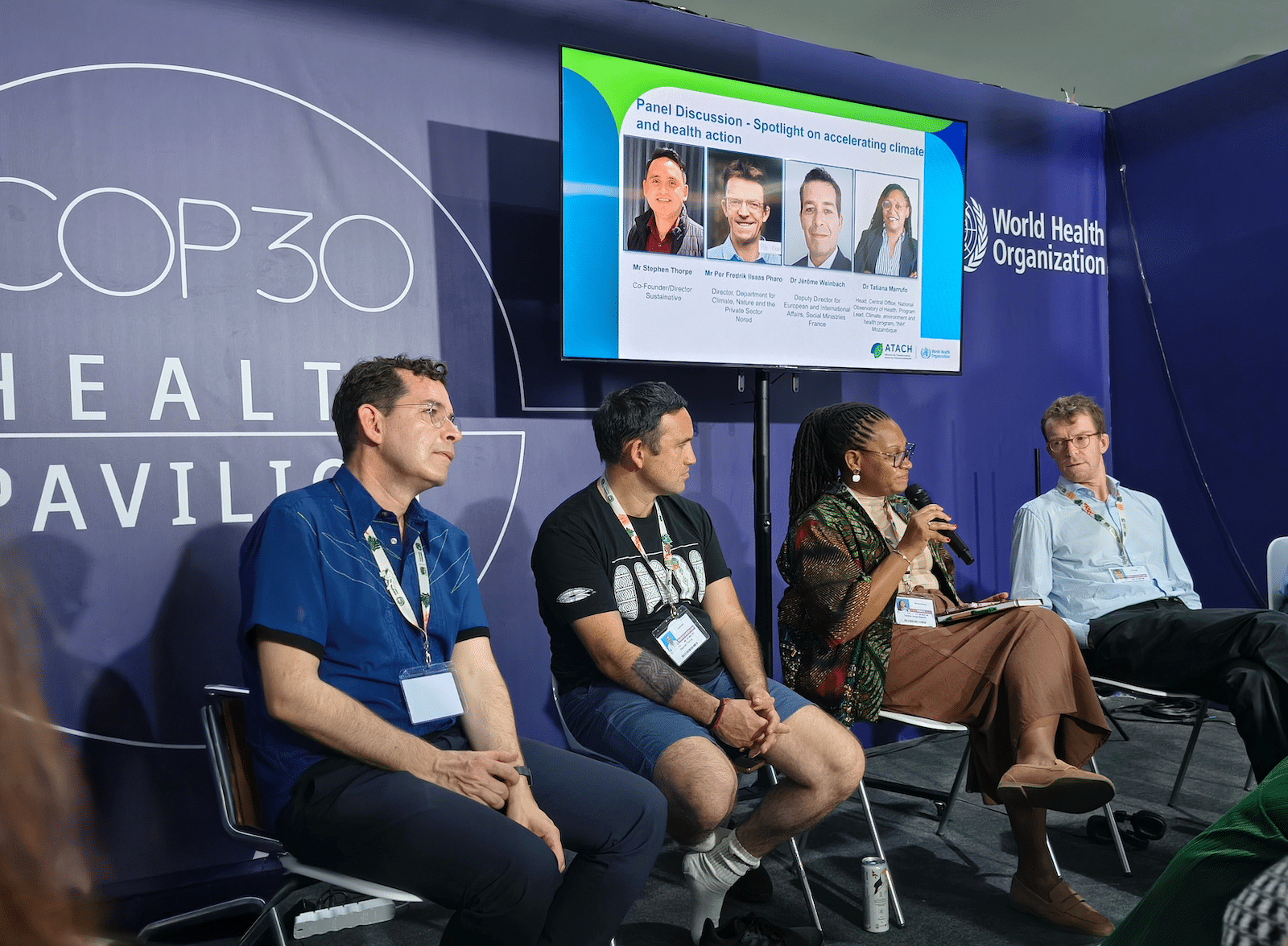
HISP Centre joins the Alliance for Transformative Action on Climate and Health
Through a new partnership with ATACH, HISP UiO will collaborate with countries and partners to strengthen digital systems and support climate-resilient and sustainable health systems worldwide.
The HISP Centre at the University of Oslo (HISP UiO), which develops and maintains the DHIS2 platform, has joined the Alliance for Transformative Action on Climate and Health (ATACH), a World Health Organization (WHO) initiative that brings together countries and partners to strengthen climate-resilient and sustainable health systems.
ATACH connects more than 95 countries and 80 partners in a global community of practice working to integrate climate and health priorities into national, regional, and global plans. The Alliance was established following the commitments made by Ministries of Health at COP26 to develop climate-resilient and low-carbon health systems, and its 2024–2028 Strategy focuses on accelerating country-level implementation through collaboration and technical support.
As a new ATACH partner, the HISP UiO contributes its experience in health information system strengthening and digital innovation. HISP UiO coordinates a network of 24 local HISP groups across Africa, Asia, the Middle East, and the Americas, which support national information systems in 89 countries. DHIS2 serves as the national health data platform in more than 75 of these countries, covering over 40 percent of the world’s population. HISP UiO is also a WHO Collaborating Centre on Health System Strengthening.
In 2024, HISP UiO launched the DHIS2 for Climate and Health project to strengthen the climate resilience of health systems in low- and middle-income countries by integrating climate and environmental data into national DHIS2 systems. The project provides tools for analysis and forecasting of climate-sensitive health impacts, helping countries develop evidence for national adaptation plans and public health policies.
Early applications of the DHIS2 for Climate and Health software include predictive modeling for malaria prevention, early warning systems for extreme weather events, and analysis of the effects of heat and air pollution on population health. The project’s initial work is focused on ten countries in Africa and Asia, with all tools and resources made freely available as open-source digital public goods.
Through participation in ATACH, the HISP network will extend our collaboration with countries and partners worldwide,sharing lessons learned and innovations from the DHIS2 Climate & Health project and learning from a global community of experts, ultimately helping strengthen data systems that support climate-informed health planning and policy, contributing to a more resilient and sustainable health systems.
Learn more about ATACH and its partners on the ATACH Community website.
For media inquiries, email comms@dhis2.org.


